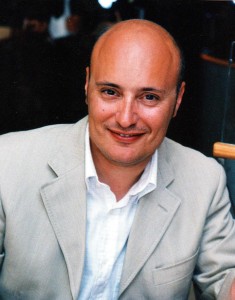A number of members of staff at eXact learning solutions are helping to run The European Learning Industry Group (ELIG)’s events at Online Educa – being held in Berlin, from 30th November to 2nd December.
ELIG’s events at Online Educa begin with a Networking Reception (30th November). This Reception includes an introduction to the TEL-Map project, which is supported by the European Union. Carin Martell, Alliance Manager at eXact learning solutions, will introduce the TEL-Map project – which focuses on exploratory ’roadmapping’ activities for new forms of learning and supports the adoption of those new forms, via awareness-building and knowledge management.
Then, on 2nd December, eXact learning solutions’ Fabrizio Cardinali, who is the Chair of ELIG, will deliver a keynote speech at the Online Educa conference entitled, ‘How Can We Get Europe’s Learning Industry (First) to the Moon and Back in the Next Decade? ‘
His presentation will draw parallels between the world’s historic industry challenges – such as the one faced by the US aerospace industry during the Cold War, with its sudden awakening after the launch of the Soviet Union’s Sputnik – and the peculiar challenges and opportunities facing Europe’s learning technologies developers in their task to help Europe survive increasing competition, both for appropriately skilled workers and for business in global markets.
The presentation will highlight the key need to combine creativity and innovation in order to be successful. Such a combination occurred in Europe during the Renaissance, according to Harvard University’s Professor Johansson – who has termed it the ‘Medici Effect’.
Cardinali said: “This session will be a call to action for the European Learning Industry to bring about a ‘Renaissance 2.0’ through the actions of innovative policy makers and creative thinkers.”
Comment: This opens up an interesting debate – about whether creativity and innovation are products of a ‘culture-induced state of mind’ or whether they provoke and feed that state of mind in the first place. In the classic ‘chicken and egg’ debate, science will tell you that the egg came first – so, in this case, we need to ‘re-evolve’ creativity and innovation in a learning context.
There is a very real possibility, however, that embarking on this ‘re-evolutionary’ cycle will create something that is almost but not quite what the learning technologists thought they were looking for. And, in that case – especially if the result is taken up enthusiastically by the corporate world – will it really matter if ‘learning’ is not what learning technologists think it ought to be any more but, rather, something more ‘altogether chicken like’ in a ‘non-egg’ way?







Leave A Comment
You must be logged in to post a comment.